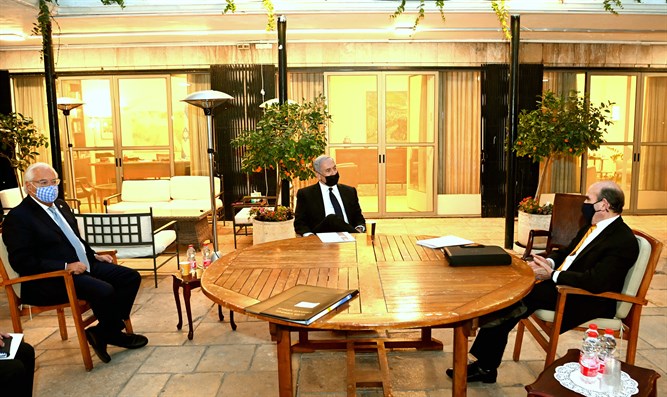US Special Representative for Iran Elliott Abrams told journalists on Monday during his visit to Israel that the Trump administration will increase sanctions on Iran in the coming weeks in accordance with U.S. foreign policy but negotiations with Iran will eventually resume regardless of who is president.
“It doesn’t really matter who is president on January 20 in the sense that there’s going to be a negotiation with Iran anyway,” Abrams said at a press briefing in Tel Aviv. “That was the intention of the Trump administration; that’s not a source of disagreement. Whether it’s possible to rejoin the JCPOA [nuclear deal] remains to be seen.”
“We have a maximum pressure sanctions program. This will continue in November and December, because it’s unrelated to politics, it has nothing to do with the elections. It’s the foreign policy of the US, and it’s based on Iran’s conduct.”
“But the question is – how do you put together a new deal. Iran hasn’t adhered to the current deal. The Middle East has changed over the last five years, and Iran needs to internalize that. The regime is in a situation in which they really need these sanctions lifted. And if we demand changes in their conduct, I don’t think they have another option. As the economy comes under more pressure, the regime understands that this could have a significant political impact inside the country.”
Abrams emphasized that he expects it to be difficult for President-elect Joe Biden to resume the 2015 Iran nuclear deal and it “remains to be seen” whether it would even be possible for the deal to be resumed.
“It’s five years old. The first sunset has already taken place in the eyes of many countries in the world – the [expiration of the Iran] arms embargo, which we have been trying to avoid through snapback sanctions.”
Abrams added that he is optimistic that Biden will take advantage of Iran’s dire economic situation into gaining concessions from the Islamic country, especially since many of the sanctions on Iran are for terrorism and violations of human rights.
“Legally, it is correct that a president has the right to reverse any executive act that he took or that a previous president took. Whether it is advisable and politically possible is a different question. In theory they can be reversed, but it is hard to see how any president would really do that without a change in Iran’s behavior.”
Abrams left Israel on Monday to his next destination – the United Arab Emirates and Saudi Arabia. Regarding a possible peace deal with Saudi Arabia, Abrams said it would be extremely difficult for a deal to be finalized in the 70 days until Inauguration Day.
(YWN Israel Desk – Jerusalem)











